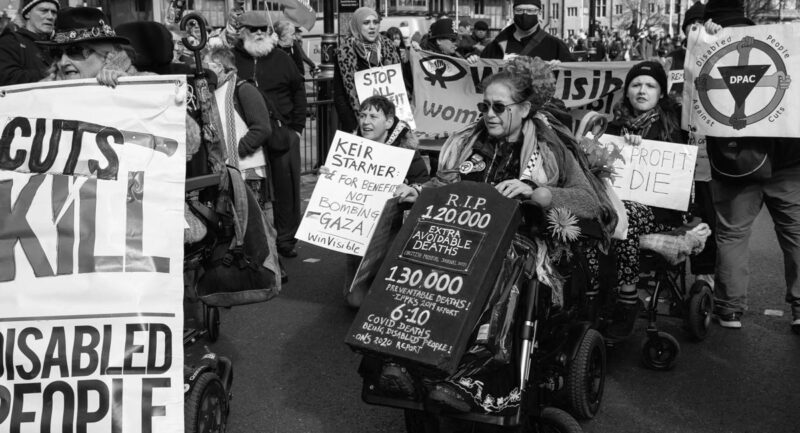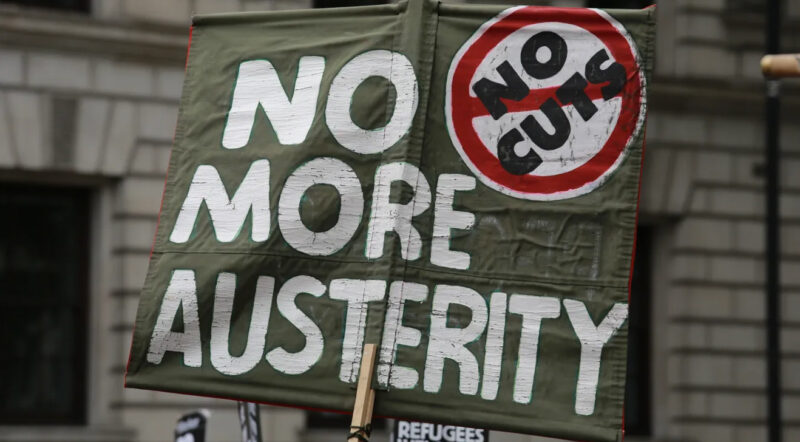PCS must learn lessons of pensions debacle or repeat mistakes
 Delegates to this year’s PCS conference were clearly in favour of further strike action in defence of pensions, pay and jobs and against the European austerity agenda, but the motions passed were careful not to commit the leadership to any specific action. Delegate Rebecca Allan reports
Delegates to this year’s PCS conference were clearly in favour of further strike action in defence of pensions, pay and jobs and against the European austerity agenda, but the motions passed were careful not to commit the leadership to any specific action. Delegate Rebecca Allan reports
The conference kicked off with a debate over the national campaign – pensions, pay and jobs – with a number of motions lined up. The emergency motion from the National Executive Committee instructed itself to “argue for further national industrial action on public sector pensions at the end of June with as many unions as possible and to take final decisions once the position of other unions becomes clear” [emphasis added] – a far cry from last year’s motion naming J30 as a strike day.
A motion from my branch called on the NEC to name the day for a strike within one month of the conference and “publicly call on all public sector unions to join the strike, and any private sector unions that also face attacks on their pensions”. Another motion called for a two-day strike and for PCS to take this action alone if necessary, while a further motion said that “we should seek to take action with as many unions as possible but this should not be a pre-condition for taking further action”.
What all these alternate motions represent is a feeling in some branches that the leadership was wrong to make other unions joining in a precondition to our own struggle to defend our own pension scheme. In effect we handed over control to our campaign to the likes of Dave Prentis (Unison), Paul Kenny (GMB) and ultimately Brendan Barber (TUC). These PCS members wanted to regain control in order to change the balance of forces in the union movement.
The Standing Orders Committee arranged it so that rather than a full debate on the various tactics, there was a debate and then vote on the NEC motion alone; only if that motion fell would any of the others be properly discussed. Mark Serwotka introduced the NEC motion, emphasising that this was a strategy for bringing out other unions with us as opposed to other approaches that would leave us isolated.
Those speaking against the NEC motion defended the alternatives, with Lee Rock giving an excellent speech in favour of putting public pressure on other unions to take action with us rather than relying union leaderships that have already sold out the dispute to have an unexpected change of heart. I said to the conference:
“We should name a day for action, not just alongside the other unions who struck with us on 10th May but alongside all those workers who want to take action – of which there are hundreds of thousands if not millions. To wait patiently for the leaders of other unions… has meant waiting five and half months between 30th November and 10th May. Let’s strike in June, comrades, but this time when other members ask us whether Unison is striking too let’s do what we can now to be able to say, ‘Yes’.”
Of course the Socialist Party, who are the largest left-wing grouping in PCS, supported the NEC motion and probably had a hand in drafting it. The surprise came from the Socialist Workers Party, who – for all their talk of “naming the day” over the past year – called for “critical support” for the NEC motion. The idea of “critical support” for a motion is nonsensical – the words are the words and voting for the NEC motion meant voting against naming the day, escalating the action and calling on other unions to join us.
When it came to a choice between sticking with their principles and opposing their allies on the NEC or ducking the fight the SWP chose the latter. With even most of the left happy to leave the decision of how to prosecute the battle to save our pensions pay and jobs solely in the hands of the leadership – i.e. the very same body who pulled the plug on the 28 March strike and left the NUT and UCU to strike alone – the NEC motion won by a huge margin.
After this disappointing start, “rule nothing in; rule nothing out” became a mantra repeated by speaker after speaker on all controversial motions. A mantra that essentially meant leaving decisions to the leadership on industrial strategy, finance and relations with other unions. The other areas of controversy were over whether to set up a strike fund for paid selective action and our relationship to the union Unite. There are widespread rumours that in the coming years the NEC will propose a merger with Unite and in response to a question from one delegate about his view on a merger, Serwotka said that he was “not in favour of it in principle and not against it in principle”. The motion calling for a closer working relationship with Unite and a “review” of this relationship by the NEC passed.
Euro crisis, euro strike
Some excellent motions were passed, including support for the family of Stephen Lawrence in their continuing campaign for justice. One of the highlights of the conference was Despina Spanou from the Adedy Greek civil servants confederation speaking about austerity and resistance, finishing with the call for a “European general strike” and a standing ovation. We then passed a motion calling for support for European workers resisting austerity and to “campaign within PCS to explore the possibility of further action being co-ordinated with European Unions to build for a 24 hour European wide public sector strike”.
There was an overwhelming amount of support for this motion and unions across Britain and the rest of Europe should join the call for a European general strike. However this motion clearly does not take on board the lessons of the N30 sell-out. If we are to move towards a general strike in Britain and take our rightful place alongside our European brothers and sisters, we have to call on the left unions – NUT, UCU, RMT, FBU, Unite, etc. – to participate in a European general strike without the TUC if needs be. Then we can put maximum pressure on the right wing leaders to join in, while encouraging their rank and file members to strike without those traitors if necessary.
Although there is still a radical mood amongst PCS reps and activists, the collapse of the N30 coalition cast a long shadow over the conference. It was a huge contrast to the recent NUT conference where 150 delegates met to debate how to carry forward the pensions strikes and forced the issue onto the conference floor as well as arranging to meet again in June.
PCS conference saw little in the way of rank and file members organising to put pressure on the leadership or to take action without them. The main difference is that the leadership of PCS does want to continue the fight; the problem is that their strategy of persuading other union leaders to take action with us has failed over five months ago.
Faced with a choice between carrying on with just the UCU and Unite, giving up altogether or putting public pressure on other union leaders to take action and making direct appeal to their members, the PCS NEC will never choose the latter option. For this reason, if we want to bring out Unison and the NUT with us again then we need to organise to force our NEC to place demands on other union leaders and if they refuse then be ready to take action ourselves.
Time will tell if this can be achieved in time to defend our pensions. But what is certain is that there are other, equally huge struggles ahead – over regional pay, cuts and closures, and privatisation – and if we are to win these, then the days of one day strikes and going only at the pace of the slowest union leaders have to end.






